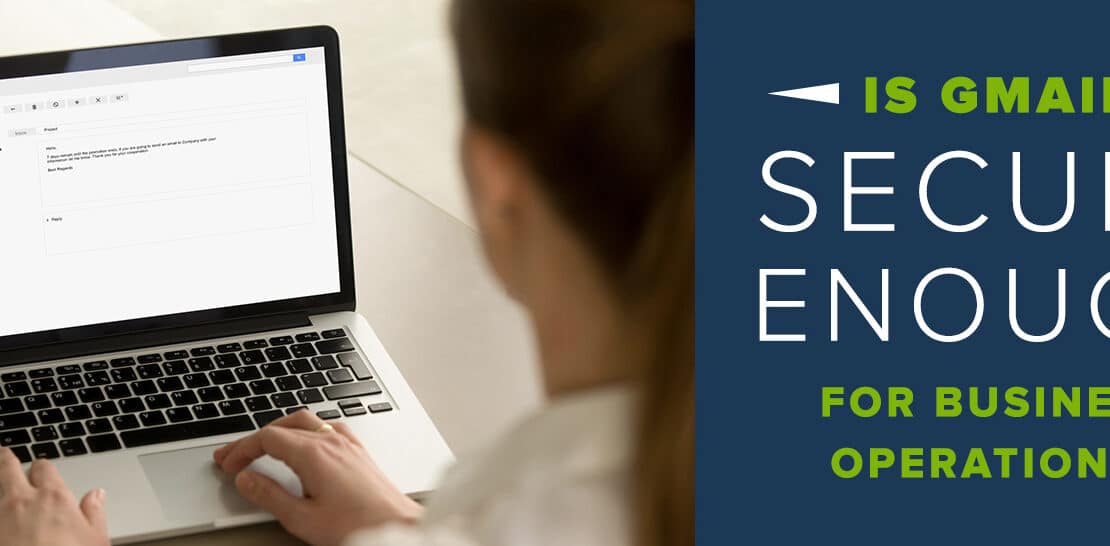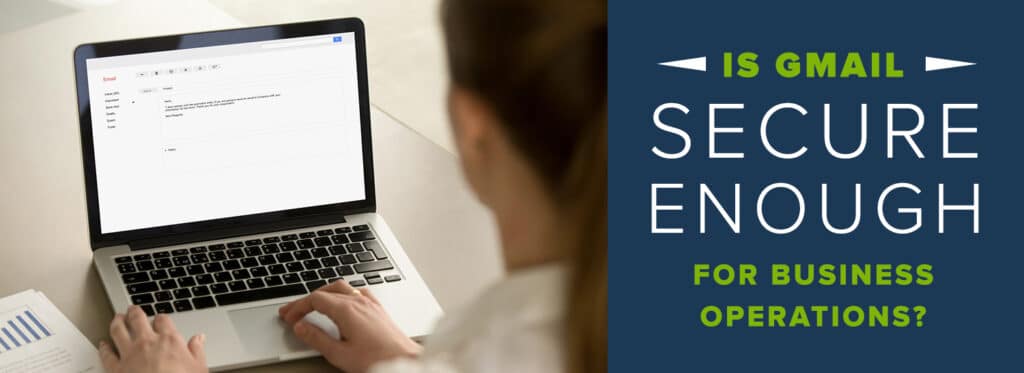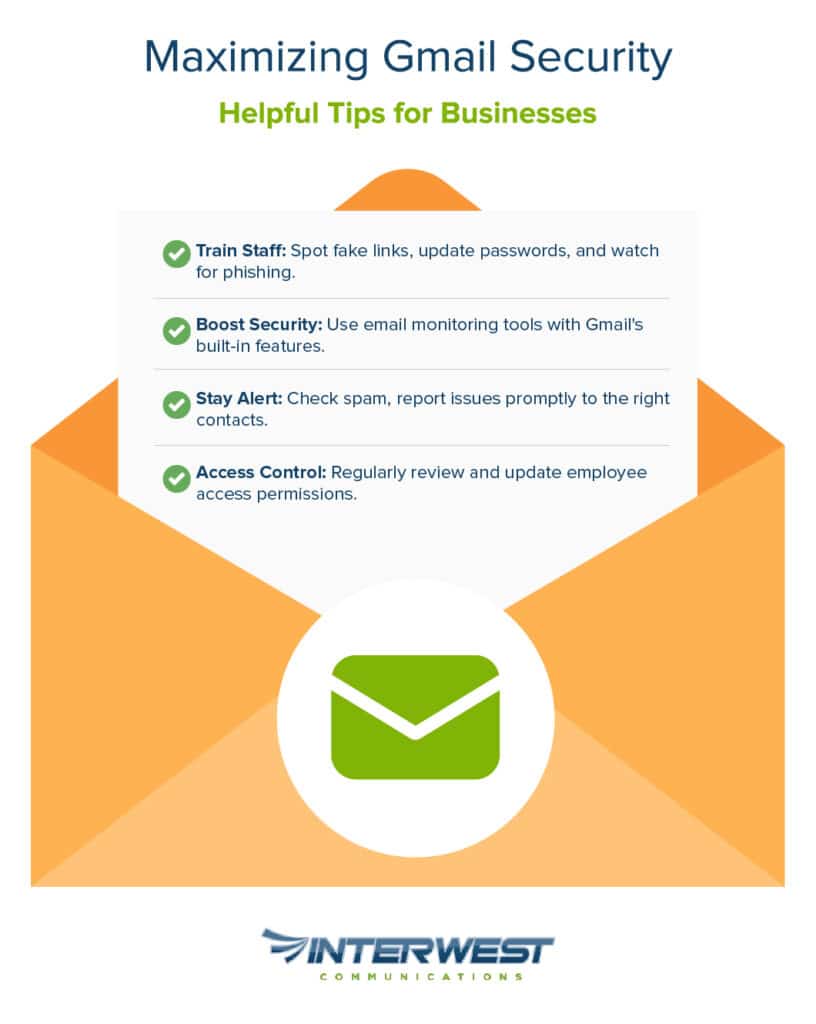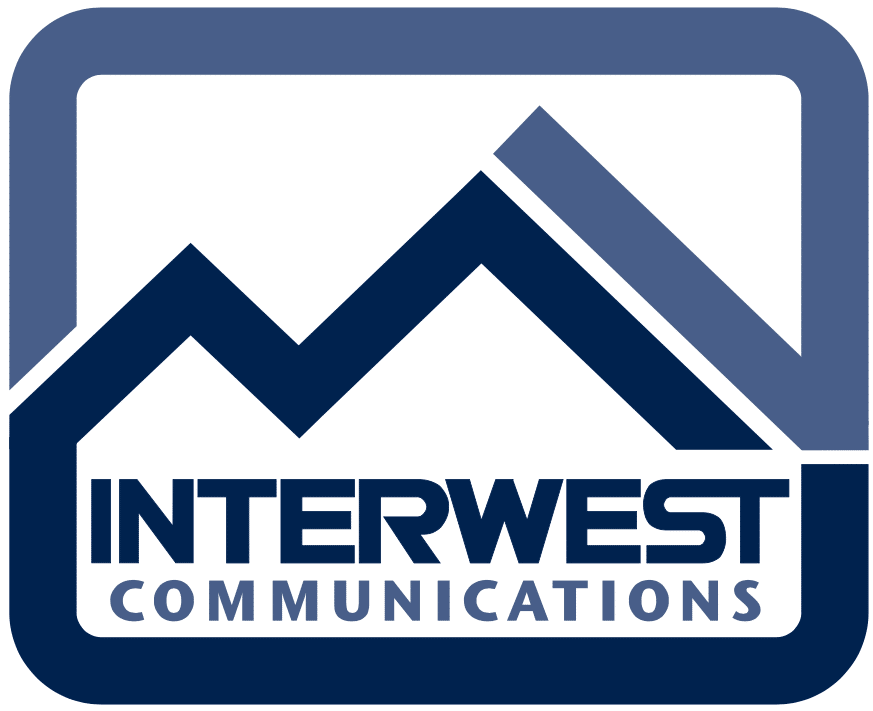- May 20, 2025
- Posted by: Interwest Communications Team
- Categories: News, Uncategorized

Originally posted on November 1, 2023 @ 8:00 am

Is Gmail Secure Enough for Business Operations?
In today’s digital landscape, email has become a fundamental tool for businesses around the world. However, with the ever-increasing threat of cyberattacks, it’s become imperative for companies to choose an email service that prioritizes security.
Gmail offers a security infrastructure that combines advanced encryption practices, proactive detection of phishing, and compliance with global data protection regulations. While no email service can guarantee absolute security, it provides a solid foundation for businesses looking to safeguard their sensitive information.
However, before we explore the specifics of Gmail’s security features, let us first understand Google’s overall approach to security so we can gain a better understanding of what Google does to protect its users.
What is Gmail’s Security Infrastructure?
Google invests heavily in maintaining the security of its products and services, which is evident in the various security measures implemented in Gmail, given that they take a multi-layered approach to protecting user data.
The measures encompass physical security controls, data center security measures, network security protocols, and encryption practices that work together to create a security framework that shields Gmail users from potential threats. So let’s take a closer look.
The 3 Main Security Measures in Gmail
Gmail offers several security measures that can further enhance the protection of user accounts and sensitive information. So let’s take a look at the main features that Gmail offers to protect your sensitive information:
-
- It provides a two-step verification process that requires users to provide a second form of authentication, such as a security key, which helps prevent unauthorized access.
- It provides suspicious activity alerts, which are designed to notify users when unusual activities are detected in their accounts, enabling them to take immediate action.
- It also incorporates automatic spam detection, phishing detection, and malware scanning to further enhance security.
These features will only continue to get better as we look into newer technology with artificial intelligence and machine learning. So now that we understand the main framework, let’s take a deeper look into their main security features.
Analyzing The Encryption Practices in Gmail
Gmail employs Transport Layer Security (TLS) encryption while your emails travel between Google servers and other email providers, which ensures the privacy and integrity of data during transmission, preventing unauthorized access or tampering.
In addition to protecting information in transit, it also utilizes Secure Sockets Layer (SSL) and TLS encryption when accessing emails through the web interface or mobile apps, which ensures that data remains encrypted and secured during the entire email session.
These tools not only work to safeguard your sensitive information against potential eavesdropping or data interception, but they also help Gmail comply with global standards for information security.
The Global Standards for Security in Gmail
Data protection regulations and compliance standards are vital considerations for businesses, especially those operating in multiple jurisdictions. So let’s take a look at the two global standards that Gmail is in compliance with to protect their users’ information.
GDPR Compliance
Gmail’s compliance with GDPR ensures that the personal data of European Union residents is handled in accordance with the strict regulations outlined by the European Commission, which include comprehensive data protection measures, user consent requirements, and transparent data processing practices.
HIPAA Compliance
For organizations operating in the healthcare industry, HIPAA compliance is particularly relevant, given that it ensures the security and privacy of protected health information (PHI) exchanged via email within the healthcare ecosystem.
Compliance with these global standards not only protects the user’s information but also helps encourage businesses to stay on top of the best data protection measures, like anti-phishing policies. So let’s get into what this is.
The Anti-Phishing Policies for Gmail
Despite its robust security infrastructure, Gmail is not impervious to phishing attempts and spam emails. However, they do employ advanced technologies to combat these threats and protect users from falling victim to fraudulent schemes.
So let’s take a closer look at some of the practices and measures they apply to their framework in order to control the phishing attempts and spam emails, thus reducing their power on this Google-run platform:
-
- They employ sophisticated algorithms and machine learning techniques to identify and block phishing emails by analyzing email content, sender reputation, and user reports.
- They filter out unwanted and potentially harmful emails by utilizing advanced filters and analyzing patterns, keeping users’ inboxes clean and secure.
By using these technologies, they help users have a more friendly experience with the platform while also protecting their information from phishing attacks or spam, further enhancing security for individuals and businesses alike.
So now that we have taken an in-depth look at the security measures they implement, let’s look at some pros and cons so we can decide if Gmail is secure for business operations.
The Pros and Cons: Is Gmail Secure for Business Operations?
As with any business decision, there are pros and cons to consider when choosing Gmail as an email service provider for business purposes.
| Pros | Cons |
| They offer a user-friendly interface. | They have limited customization options. |
| They allow for ample storage space. | They are dependent on internet connectivity. |
| They have very powerful search capabilities. | There are concerns over data privacy. |
| They provide robust security features that are in compliance with global standards. | You need to assess whether Gmail’s compliance measures meet their specific requirements. |
As you can see, there are both advantages and disadvantages to using Gmail for your business. So now that you have seen the full picture, you need to determine whether it’s the way to go for your business. And if you decide it is, let’s look at how to make the most of it!
Making the Most of Gmail’s Security Features for Business
To maximize Gmail’s security benefits for business use, it is essential to consider multiple factors. So let’s take a look at some tips to get the most out of using Gmail for your business:

-
- Educate employees on how to avoid suspicious links and attachments, update passwords, and be vigilant against phishing attempts.
- Consider implementing additional security measures, like email monitoring tools, to complement Gmail’s built-in security features.
- Regularly assess the spam folder and report any suspicious activity to the correct stakeholders so they can address the issue promptly.
By following these practices, you will be sure to make the most of implementing Gmail into your business’s arsenal of tools. So, will you use Gmail to maximize your business’s security?
Will You Use Gmail for Your Business?
By leveraging its array of security features, businesses can embrace Gmail as a secure and reliable email solution for their day-to-day operations. But don’t take our word for it; check it out for yourselves to see if it suits your company’s needs.
